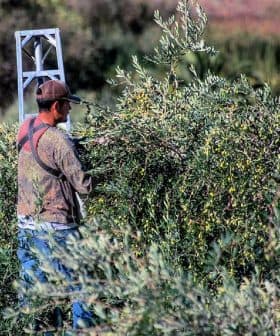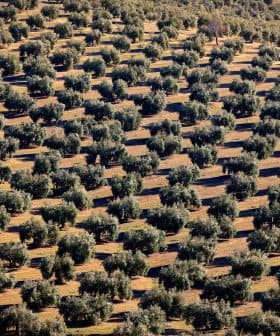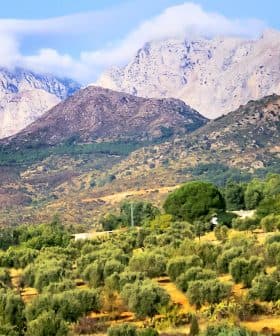 7.6K reads
7.6K readsNews Briefs
Europe Confirms Steep Decline in Olive Oil Production

The European Commission reported a 40 percent decline in olive oil production in member countries for the 2022/23 crop year, with estimated production of 1,391,000 tons compared to 2,272,000 tons the previous year. The low harvest and dwindling stocks may lead to further olive oil price increases, impacting consumption and storage availability in the E.U.
The latest data published by the European Commission confirm a 40 percent decline in olive oil production by member countries in the 2022/23 crop year compared to the previous one.
Production in E.U. is estimated to reach 1,391,000 tons, compared to 2,272,000 tons in 2021/22 and significantly below the 2,100,000 ton average of the previous five years.
According to the E.U.’s quarterly short-term agricultural outlook report, the low harvest and dwindling olive oil stocks might sustain further olive oil price increases.
See Also:Global Olive Oil Production Predicted to ReboundThe European Commission’s Department of Agriculture and rural development, which authored the report, noted how olive oil prices in Spain experienced the most significant increase in the E.U. compared to the average of the last five years.
In mid-July, the department estimated that producer olive oil prices ranged from €600 per ton reported in Spain to €720 per ton recorded in Italy.
The report’s authors stated that higher prices impact overall consumption, especially in the main olive oil-producing countries.
A few weeks ago, the Spanish Union of Small Farmers (UPA) noted how olive oil sales remained strong in the first six months of 2023.
Still, department experts warned that it is likely that overall olive oil consumption at the end of the crop year will be lower than previously expected, given these price developments.
The commission forecasted consumption to barely exceed 1 million tons in Spain, Italy, Greece and Portugal, down from more than 1.2 million tons in the previous crop year.
The report also noted how olive oil imports are expected to rise to 200,000 tons from the 151,000 tons of the previous season. Meanwhile, exports are expected to decrease from 800,000 to 600,000 tons.
Such trends will impact olive oil storage availability, which is expected to close the season at 281,000 tons, one of the lowest levels of the last 10 years. The average of the previous five years exceeded 650,000 tons.
Introducing the report, E.U. experts noted how weather uncertainties and unusual market conditions impact European farmers in every country and affect many agricultural commodities.
Production costs remain significantly high for olive farmers. In a recent statement Cristóbal Gallego, president of the olive oil-producing cooperative Jaencoop in Spain, warned that high production costs do not allow growers to enjoy a better income despite strong sales and rising prices.
The significant energy and fertilizers costs and inflation are among the most relevant challenges.
According to the report, even though inflation has stabilized throughout the continent, it remains high, evenly impacting the whole agricultural market.
The department noted that there is no sign that retail food prices could decrease to 2021 levels. As living costs stay high, household budgets remain constrained, and food expenditure continues to be affected.









